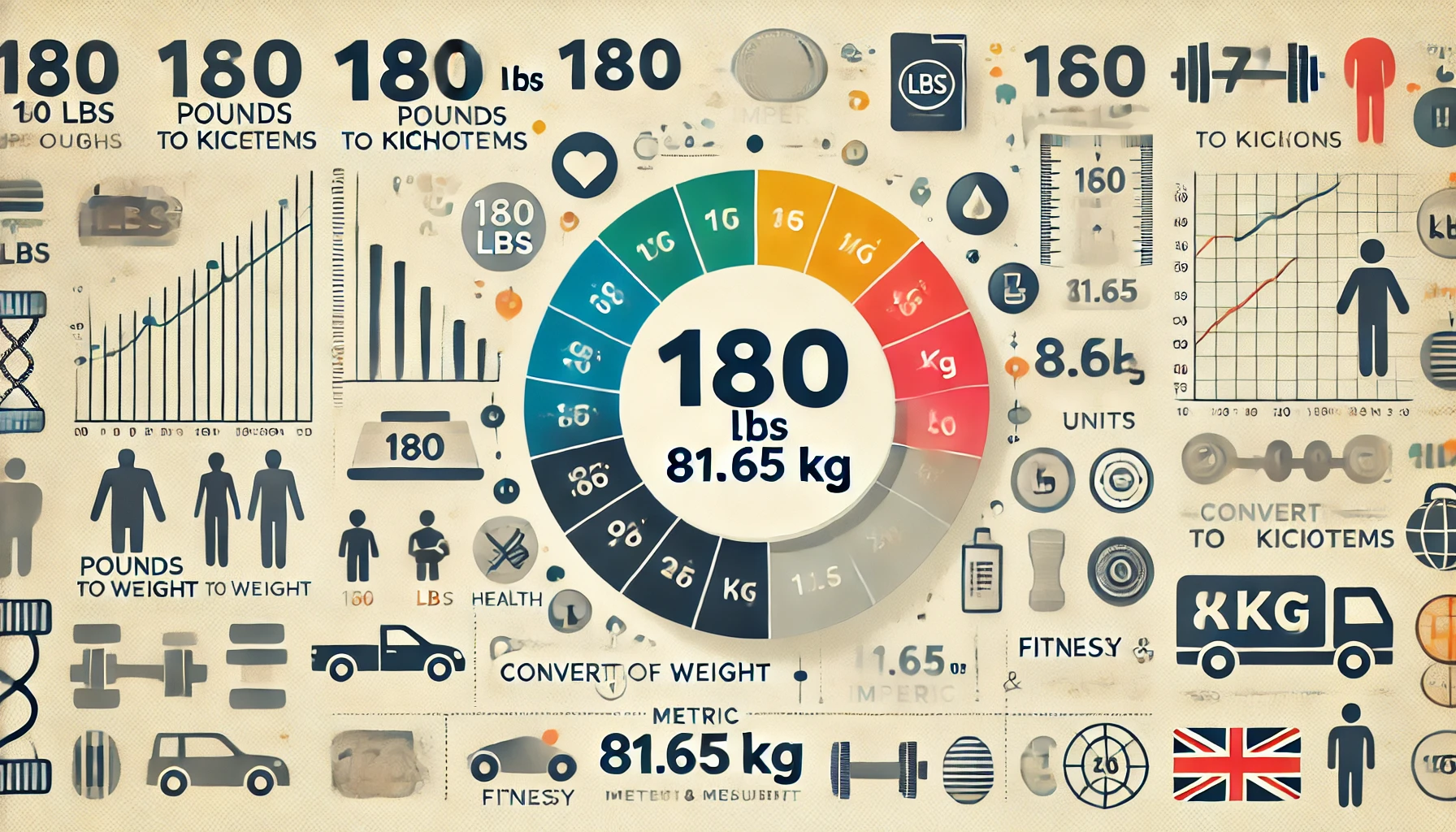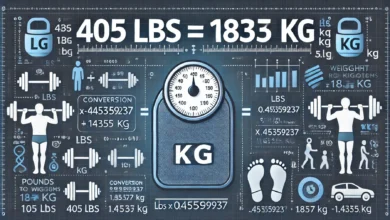Convert 180lbs en kg – A Complete and Accurate Guide

When it comes to converting measurements, particularly in weight, it’s common to get confused between imperial and metric systems. One of the most frequent queries is “180lbs en kg”. Whether you’re tracking fitness goals, checking body weight, or simply curious, converting 180 pounds to kilograms is a practical need for many. In this guide, you’ll find everything you need to understand this conversion clearly, accurately, and efficiently.
What Does “lbs” and “kg” Mean?
Before jumping into the conversion itself, it’s important to grasp the units involved:
- lbs stands for pounds, a unit used in the imperial system, primarily in the United States and some Caribbean countries.
- kg, short for kilograms, is part of the metric system, used globally and considered standard in science and most countries.
The Exact Formula for Converting 180lbs en kg
To convert pounds (lbs) into kilograms (kg), you need to use a precise conversion factor. The formula is:
javaCopyEditWeight in kilograms = Weight in pounds × 0.45359237
Let’s apply that to our case:
CopyEdit180 lbs × 0.45359237 = 81.6466266 kg
So, 180lbs en kg equals approximately 81.65 kilograms.
Rounded vs. Exact Conversions
Often, for simplicity and ease, people round the results. While 81.65 kg is precise, it’s commonly rounded to:
- 81.6 kg (one decimal place)
- 82 kg (whole number)
Rounded values are sufficient for general use, such as fitness tracking or cooking, where extreme precision isn’t mandatory.
Why Convert 180lbs en kg? Common Scenarios
There are several situations where converting 180lbs en kg becomes useful:
- Health and Fitness – Many international fitness programs use kilograms.
- Medical Contexts – Doctors worldwide measure weight in kg.
- Travel and Immigration – Forms and documents may require metric units.
- Academic Purposes – Science and engineering fields favor metric units.
Each of these scenarios benefits from knowing the accurate weight in kilograms.
Conversion Table for Quick Reference
| Pounds (lbs) | Kilograms (kg) |
|---|---|
| 170 | 77.11 |
| 175 | 79.38 |
| 180 | 81.65 |
| 185 | 83.91 |
| 190 | 86.18 |
This table offers a quick glance at similar weights and their equivalent in kilograms.
Using Online Tools and Calculators
For convenience, you can use online converters. These tools eliminate manual calculations and provide instant results. Websites like ConvertUnits.com or even Google’s search bar can convert 180lbs en kg instantly. Just type “180 lbs to kg,” and the result will appear.
Tips for Accurate Conversion Every Time
- Always use the correct conversion factor: 0.45359237.
- For health and scientific records, prefer two decimal places.
- Use apps or spreadsheets to automate bulk conversions.
Understanding Weight Categories
Once converted, 180 lbs (or ~81.65 kg) often falls under different body mass ranges depending on height and gender. For instance:
- For a 6’0″ male, 180 lbs may be within a healthy range.
- For shorter heights, it might lean toward overweight.
Thus, while the “180lbs en kg” conversion gives you the number, health interpretations depend on context.
Frequently Asked Questions (FAQs)
1. How do I manually convert 180lbs to kg?
Multiply 180 by 0.45359237. The result is 81.65 kg.
2. Is 180lbs a healthy weight?
It depends on your height, gender, and overall health. Use BMI calculators for insights.
3. Can I round 81.65 kg to 82 kg?
Yes, for general use, rounding is acceptable unless precision is crucial.
4. Are there apps for converting lbs to kg?
Absolutely! Many apps and smart devices include built-in converters.
5. Why does the U.S. still use pounds?
Cultural, historical, and legislative factors have kept the imperial system in widespread use in the U.S.
6. Is there a difference between kilograms and kilos?
No, “kilos” is just a casual term for kilograms.
Conclusion
Now that you’ve seen how simple and accurate it is to convert 180lbs en kg, you can apply this knowledge in daily life, whether it’s for fitness, travel, or curiosity. Remember, 180 lbs is approximately 81.65 kg, and this small piece of math can make a big difference in how you understand your health or interpret data. Keep this guide handy, and conversions will never confuse you again.




